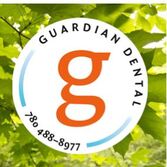Myofunctional Therapy
What and Who? Physiotherapy for your Face!
Myofunctional Therapy, also known as Oral Myology, helps to establish proper function and posture of the lips, cheeks and tongue muscles. These complex muscles, working together, have an affect on the growth and position of jaws and teeth, which influences our facial growth, airway function, chewing and swallowing ability and overall posture.
Humans are very creative at adapting how our bodies function - often in ways that are less than ideal. The results of muscle compensation for poor function can be problematic for individuals at any age. These problems range from malocclusion (crooked teeth, poor tooth alignment), to Temporomandibular Joint (TMJ) problems, to breathing (snoring and sleep apnea), speech, and swallowing issues. Myofunctional therapy addresses the root cause of life-affecting conditions through individual evaluation, training and muscle toning.
Myofunctional therapists are specially trained dental hygienists (RDH), speech language pathologists (SLP) or dentists (DDS). The International Association of Orofacial Myology (IAOM) trains and accredits practitioners.
Myofunctional Therapists work closely with dentists, doctors, ENTs, allergists, orthodontists, occupational therapists, physical therapists, oral surgeons and chiropractors. Myofunctional orthodontists (Myobrace, BioBlock Orthotropics, traditional orthodontics), work in conjunction with myofunctional therapists to correct oral structural issues that result in crowding and poor tooth alignment.
Why myofunctional therapy?
How does Myofunctional therapy work?
Myofunctional therapy takes multiple appointments. The therapy program is individually customized to address the needs of the unique patient and their ability.
Treatment requires:
Myofunctional Therapy Programs at Guardian Dental
Habit Correction $400
Myofunctional Assessment $200, Sessions $120
Is this covered by insurance?
Myofunctional therapy is not covered under public health. Many employer health benefits packages will offer some extended health coverage but myofunctional therapists bill directly and you will be responsible for investigating your coverage, including maximums for specific treatment, and managing the submission of any claims.
Myofunctional Therapy, also known as Oral Myology, helps to establish proper function and posture of the lips, cheeks and tongue muscles. These complex muscles, working together, have an affect on the growth and position of jaws and teeth, which influences our facial growth, airway function, chewing and swallowing ability and overall posture.
Humans are very creative at adapting how our bodies function - often in ways that are less than ideal. The results of muscle compensation for poor function can be problematic for individuals at any age. These problems range from malocclusion (crooked teeth, poor tooth alignment), to Temporomandibular Joint (TMJ) problems, to breathing (snoring and sleep apnea), speech, and swallowing issues. Myofunctional therapy addresses the root cause of life-affecting conditions through individual evaluation, training and muscle toning.
Myofunctional therapists are specially trained dental hygienists (RDH), speech language pathologists (SLP) or dentists (DDS). The International Association of Orofacial Myology (IAOM) trains and accredits practitioners.
Myofunctional Therapists work closely with dentists, doctors, ENTs, allergists, orthodontists, occupational therapists, physical therapists, oral surgeons and chiropractors. Myofunctional orthodontists (Myobrace, BioBlock Orthotropics, traditional orthodontics), work in conjunction with myofunctional therapists to correct oral structural issues that result in crowding and poor tooth alignment.
Why myofunctional therapy?
- The tongue is a very strong and determined muscle and incorrect tongue posture can have a damaging effect on development.
- Incorrect tongue, lips and cheek posture and function are extremely common and often undiagnosed.
- Improve your breathing, eating, sleep and body posture.
- Treat jaw and face pain by correcting function.
How does Myofunctional therapy work?
Myofunctional therapy takes multiple appointments. The therapy program is individually customized to address the needs of the unique patient and their ability.
Treatment requires:
- Assessment and data collection appointment, approximately 1 hour to identify functional and structural issues, You will receive a report on the findings, and a treatment plan.
- The number and frequency of 30 minute myofunctional sessions depends on the concerns to be addressed, progress rate and age of patient. Typically, 12-20 sessions will be required, starting on a weekly basis.
- Customized exercises to be practiced at home.
- Some activities require materials which will be provided. There may be replacement costs if materials are lost or forgotten.
- Possible referral to another practitioner in order to address structural limitations - this may be orthodontics, tongue tie surgeon, chiropractor , sleep doctor, etc.
Myofunctional Therapy Programs at Guardian Dental
Habit Correction $400
- thumb sucking, nail biting, cuticle chewing, cheek biting for kids, up to one month of therapy, texting and call support
Myofunctional Assessment $200, Sessions $120
- Children and adults
- Habits are hard to break - 12 to 22 sessions are typically required
- TMJ Pain
- Posture issues
- Mouth breathing, lip seal, snoring
- Grinding and clenching
- Help prevent orthodontic relapse
- Improved facial growth and appearance
Is this covered by insurance?
Myofunctional therapy is not covered under public health. Many employer health benefits packages will offer some extended health coverage but myofunctional therapists bill directly and you will be responsible for investigating your coverage, including maximums for specific treatment, and managing the submission of any claims.
